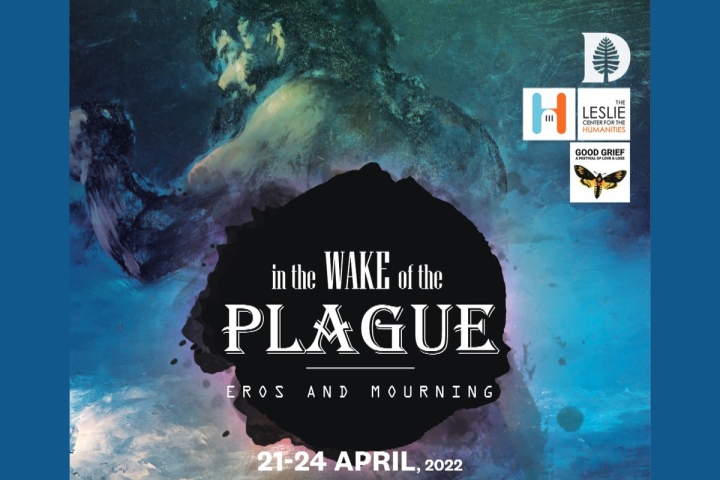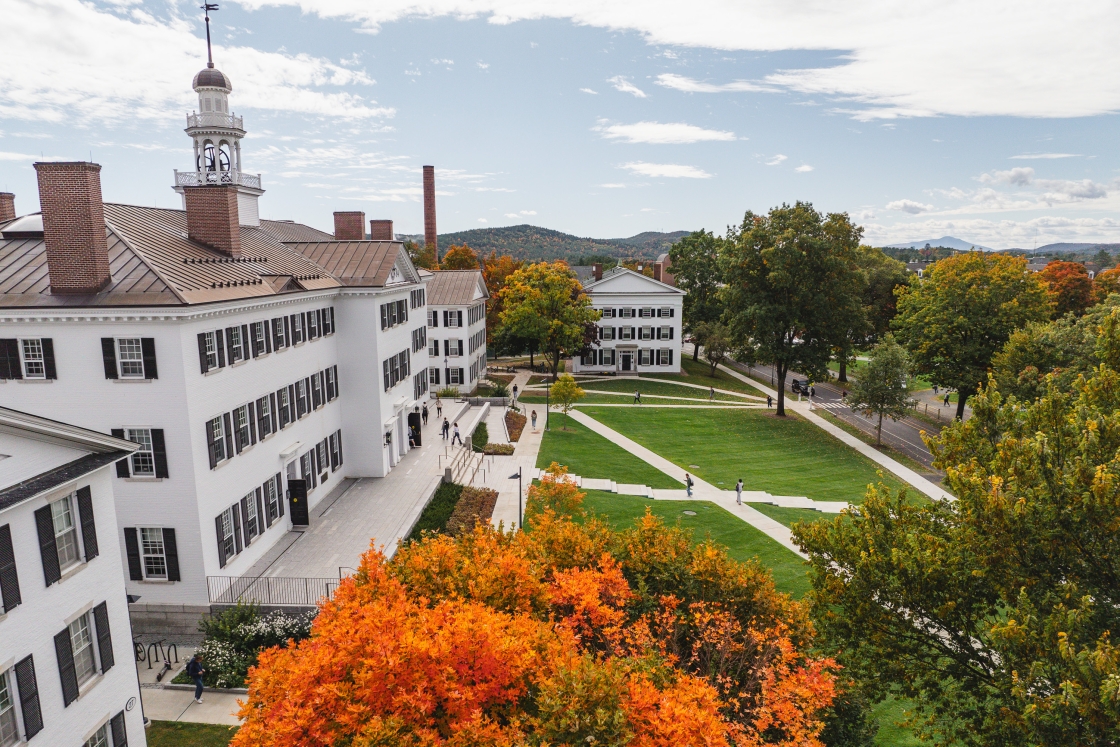A deadly global pandemic. The rise of authoritarianism. Perilous climate change.
“It’s hard to wrap your mind around everything that’s happening right now,” says James Godley, a postdoctoral fellow at the Society of Fellows.
But what if many minds, from many disciplines, gathered to share thoughts and feelings about the times we are living through, linking past and present, sciences and humanities, intellect and emotion?
With another fellow, Yi Wu, and with Klaus Mladek, associate professor of German studies and comparative literature, Godley has organized a symposium called “In the Wake of the Plague: Eros and Mourning,” bringing together philosophical, aesthetic, classical, political, medical, and clinical perspectives on love and loss during times of plague.
Godley says the idea for the April 21 to 24 conference grew from their informal reading group.
“Even as we were reading Plato, among other classics, our conversation tended to drift more and more toward the contemporary. Thucydides writes about a plague happening in Athens at the same time as there’s a civil war going on. It was this background of disorientation and confusion that led to Socrates and Plato’s whole project, to try to make sense of everything, and this seemed like an apt description of our own polarized time, too,” says Godley.
Keynote speakers include Arlene Saxonhouse, author of Fear of Diversity; 2019 Montgomery Fellow George Yancy, author of Backlash: What Happens When We Talk Honestly About Racism in America; and Slavoj Žižek, author of Less Than Nothing: Hegel and the Shadow of Dialectical Materialism.
There will also be a keynote panel called “The End and Its Unmaking” featuring Alenka Zupančič and Stathis Gourgoris, a professor of philosophy at the European Graduate School and a comparative literature professor at Columbia, respectively. More than 20 Dartmouth participants come from a wide variety of departments and programs, joining colleagues from across the country and around the world.
Students will participate in “An Oral History of the Pandemic at Dartmouth,” sharing personal narratives and testimonies of the COVID-19 pandemic, coordinated by North Park House, South House, and the Dartmouth Student Union.
“We want people to engage with us both intellectually and emotionally as an experience, as something they can connect to their lives,” Godley says. “We hope to present the audience with different ways to perceive the pandemic and offer tools for understanding what’s going on.”
The symposium is sponsored by the Leslie Center for the Humanities and co-sponsored by the Office of the Provost; the Dartmouth Institute for Health Policy and Clinical Practice; the Associate Dean of the Faculty for the Arts and Humanities; DHMC Palliative Care; The Ethics Institute; The Eric Eichler ’57 Fellowship for Health Care Leaders; the Society of Fellows; the Center for Death and Society at the University of Bath; and the Good Grief Festival.
Additional support comes from the following departments and programs: English and Creative Writing; Master of Arts in Liberal Studies; Film and Media Studies; Digital Humanities and Social Engagement; Government; Music; Classics; Philosophy; African and African American Studies; Women’s, Gender and Sexuality Studies; German; and Art History.
The hybrid event takes place at various campus locations and will be simultaneously filmed and broadcast as a Zoom webinar. The link to the webinar will be accessible on the conference website. Recordings of most of the events will be available on the website following the event.

